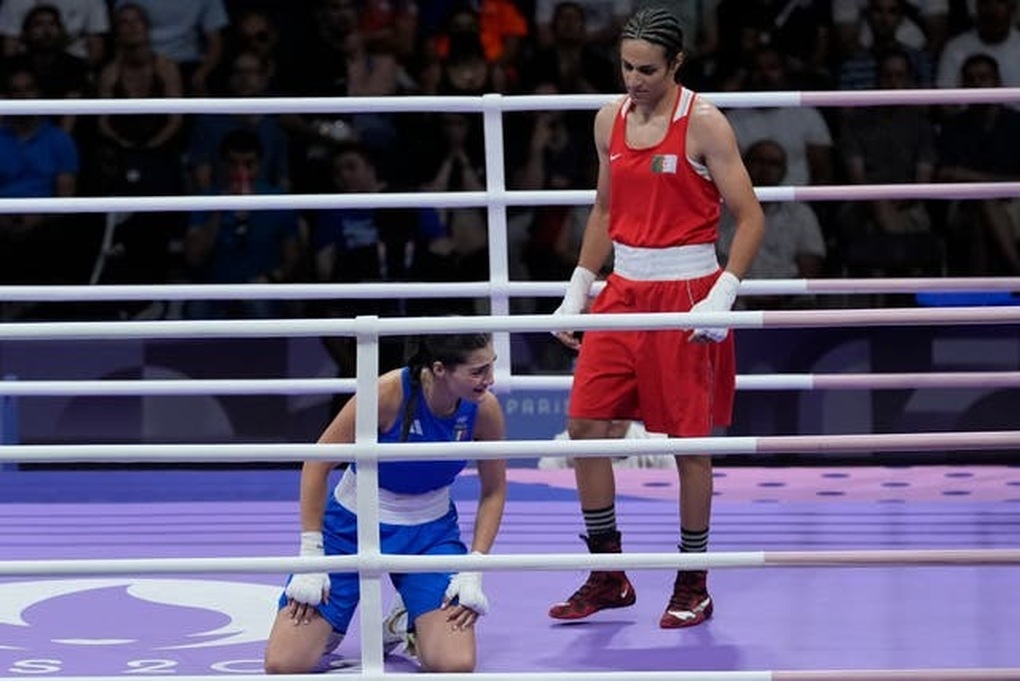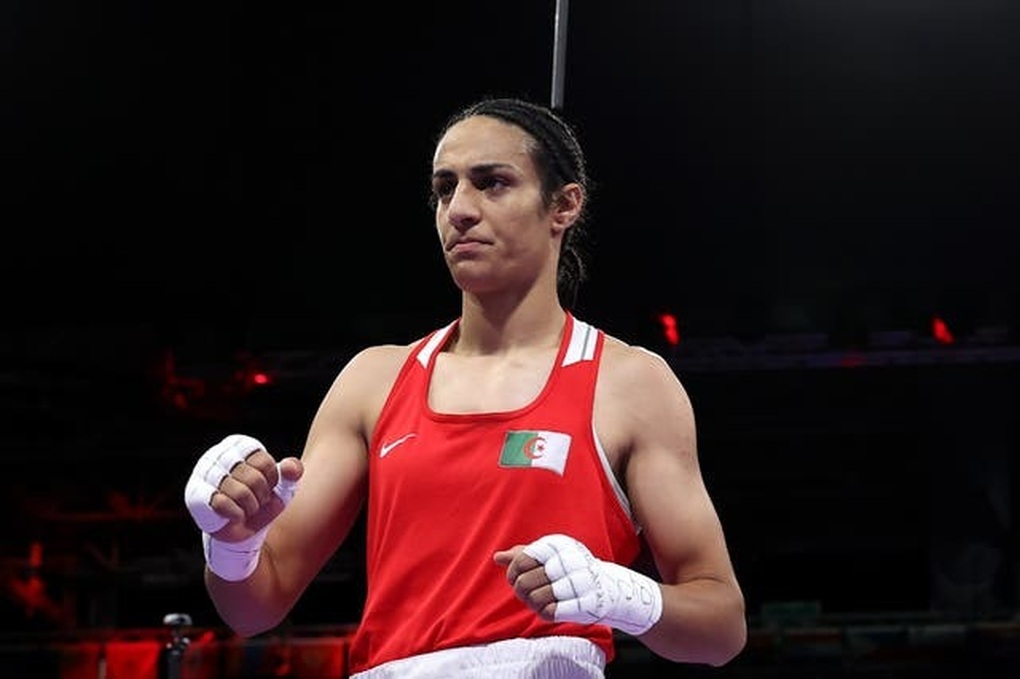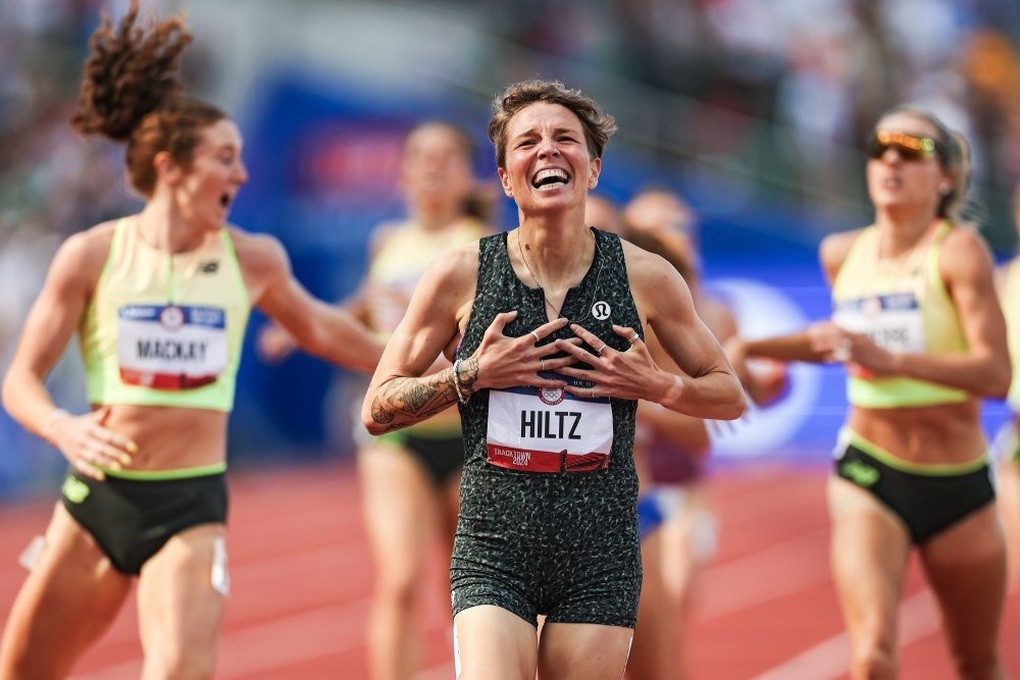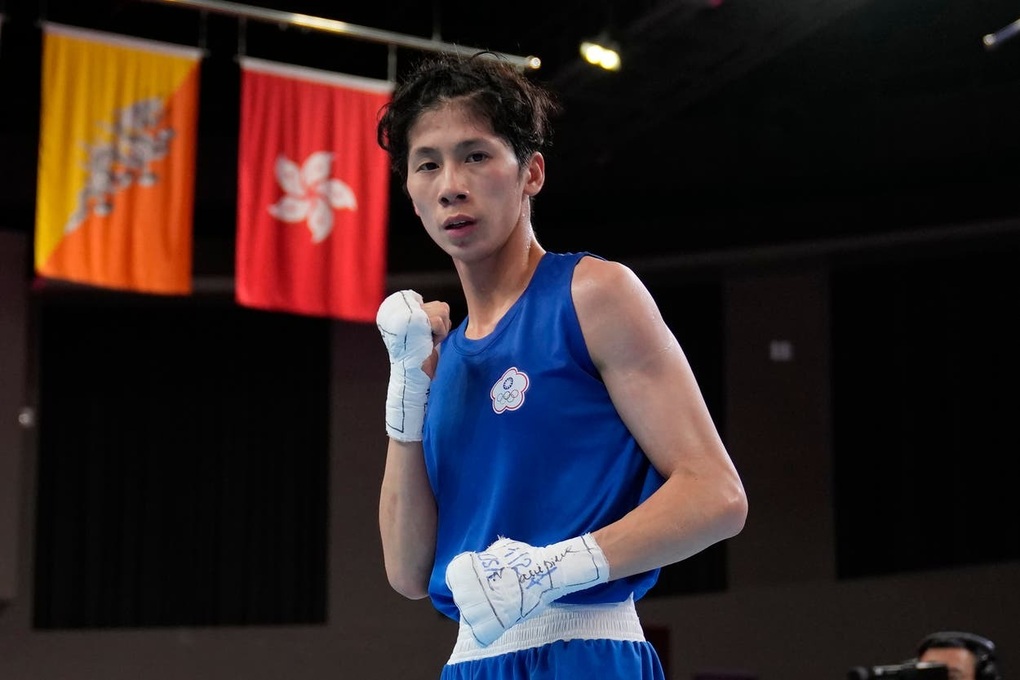In fact, the 2024 Paris Olympics have much stricter rules and regulations for transgender athletes than previous Olympics.
The Games in the French capital made history as the first to feature gender equality, with 50% of the medals going to women, a first in the event ‘s history.
However, there is growing interest in transgender athletes, with concerns that real female athletes will be disadvantaged when competing against transgender female athletes.

The evidence was clearly seen after the female boxer Angela Carini (Italy) quit after only 46 seconds when facing female boxer Imane Khelif (Algeria) – an athlete suspected of having a gender. Imane Khelif threw two punches like thunder, causing Carini to quit to “preserve her life”.
What are the rules for transgender athletes competing in the Olympics?
According to the Independent , the International Olympic Committee (IOC), which oversees the Olympics, does not have specific rules or regulations but instead includes 10 guiding principles for transgender athletes.
The IOC requires each international federation to be responsible for establishing eligibility rules for its sport , including eligibility criteria that determine the level of athletes participating in the Olympic Games.
IOC guidelines require male athletes to transition before the age of 12 to be eligible to compete in the women’s team, in order to prevent any potential biological advantage from male puberty.
The IOC guidelines have now been adopted by World Athletics and the International Swimming Federation.

Meanwhile, the International Cycling Union follows the IOC’s guidelines for the women’s category but is more open in the men’s category, allowing transgender athletes to compete freely.
The International Sailing Federation allows pre-pubertal transgender people to compete, but with the added criterion that testosterone levels must be below 2.5 nmol/L for at least 24 months.
Triathlon, tennis and archery federations also require testosterone levels to be below a certain threshold to allow athletes to compete. Other sports allow transgender athletes to compete on a case-by-case basis.
Which transgender or gender fluid athletes will compete in the 2024 Paris Olympics?
Laurel Hubbard competed in the 2020 Tokyo Olympics, becoming the first openly transgender athlete to compete in the Olympics, but finished last in her division. However, she will not compete in the 2024 Paris Olympics.

Nikki Hiltz is a transgender and “gender-fluid” athlete who has always competed in the women’s category and will represent the US sports delegation at the 2024 Paris Olympics in the women’s 1500m race.
The 29-year-old athlete won the women’s 1,500m event at the 2023 US Championship and won a silver medal at the 2024 World Indoor Championship. The athlete, born in 1994, is the number one candidate to win the gold medal in the women’s 1,500m event at the 2024 Paris Olympics.
Quinn, a gender-fluid Canadian soccer player, has also been selected to represent her country at the 2024 Paris Olympics. The Toronto midfielder, who has always played in the women’s categories, was instrumental in helping the Canadian women’s soccer team reach the quarterfinals despite her team being docked six points following a training spying scandal.

In boxing, in addition to Imane Khelif, who is suspected of being a transgender athlete participating in the Paris Olympics, there is also a similar case of Taiwanese athlete Lin Yu Ting. Both boxers were disqualified from the world championships last year for failing gender testing, but still qualified to participate in the Paris Olympics.
Notably, no transgender women will compete in the men’s category at the 2024 Paris Olympics.
Which transgender athletes are banned from competing at the Paris Olympics?
American cyclist Chelsea Wolfe had hoped to compete at the Paris Olympics before International Cycling Union rules changed and ended her hopes of competing. She had previously qualified for the 2020 Tokyo Olympics as an alternate.
Halba Diouf’s dream of competing at the 2024 Paris Olympics has also ended due to new regulations from the World Athletics Federation. The rule that transgender athletes must be 12 years old to be eligible to compete in the women’s group has made the French-Senegalese sprinter ineligible to compete in Paris.
Swimmer Lia Thomas became the first transgender athlete to win a US college championship in 2022, but was banned by the International Swimming Federation from competing at the 2024 Paris Olympics, also because of IOC guidelines requiring her to transition before the age of 12.
